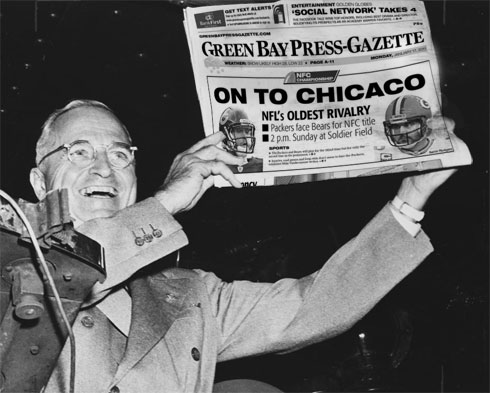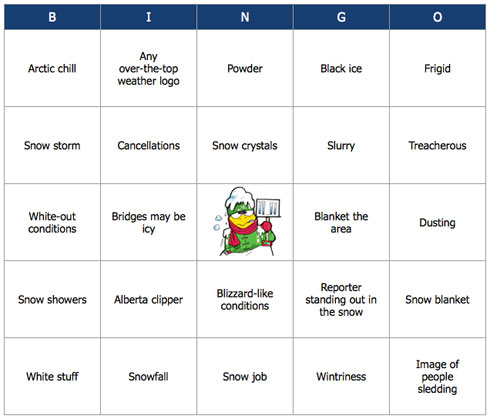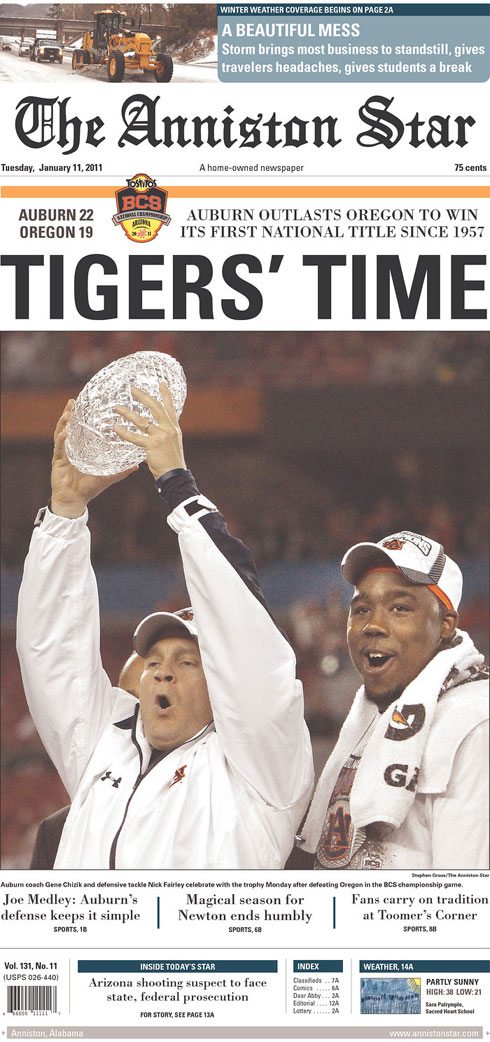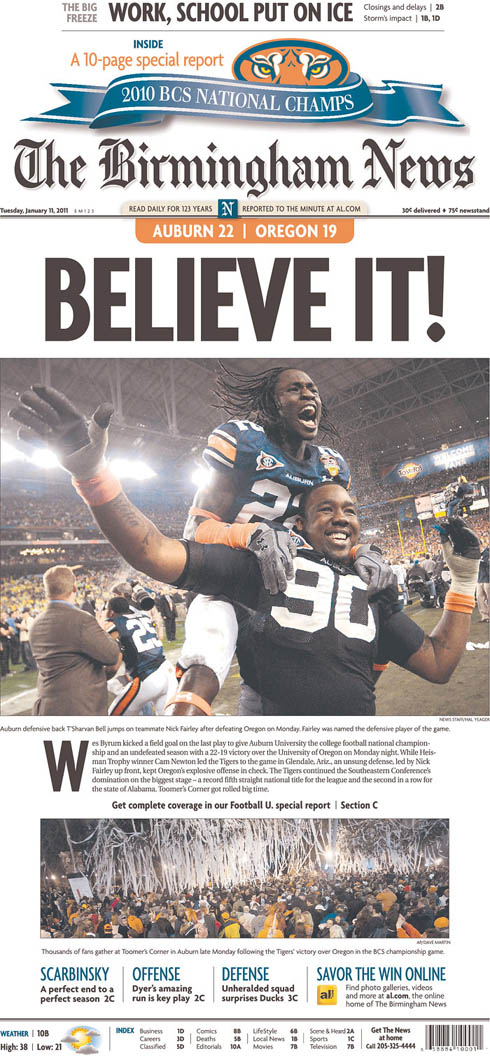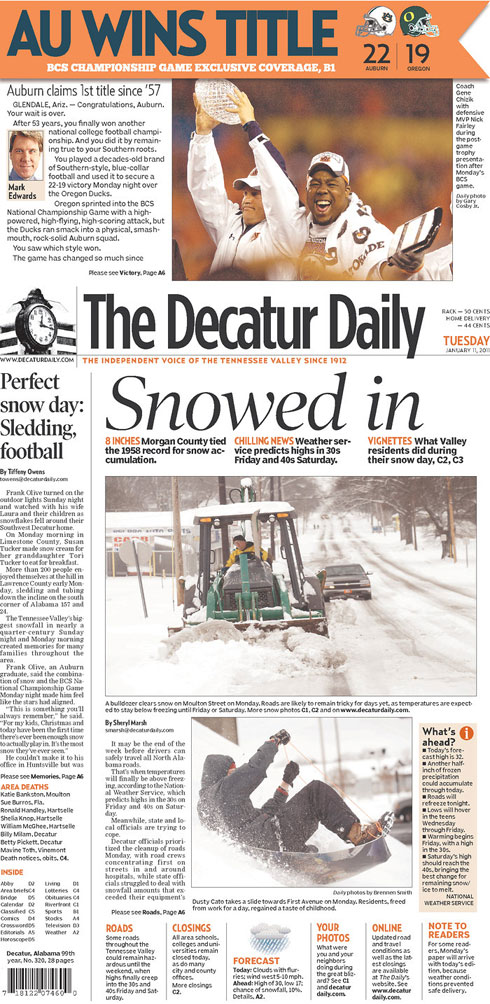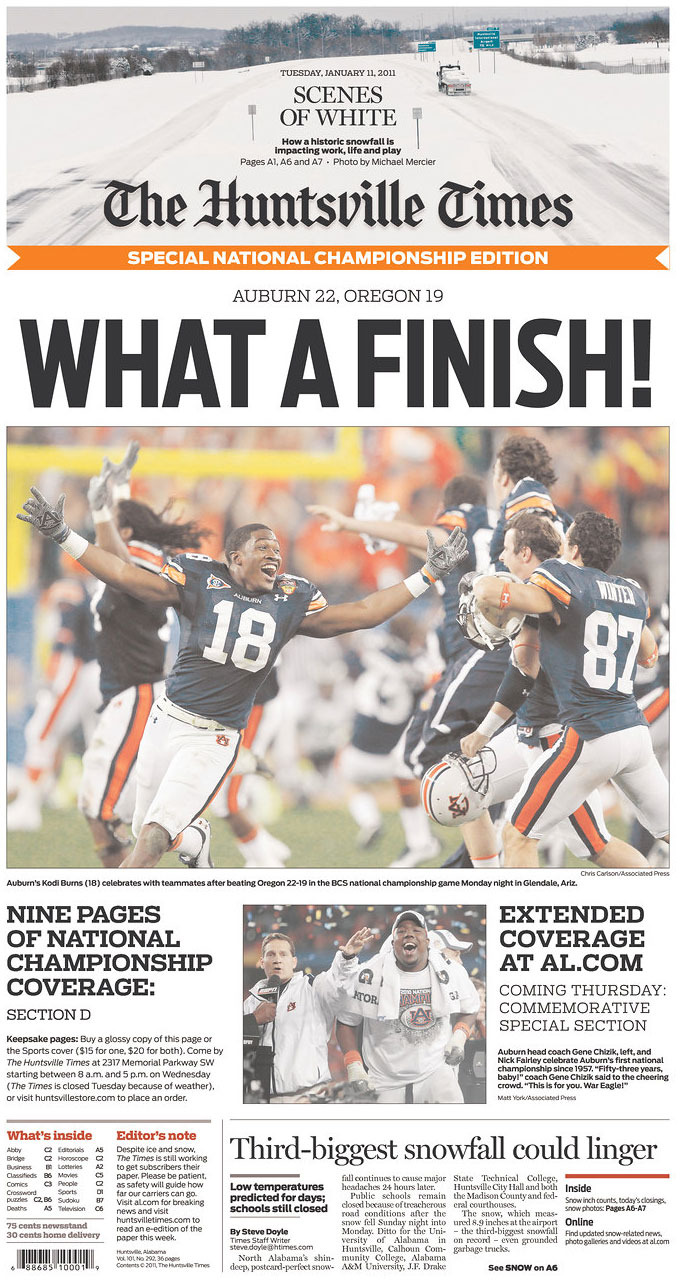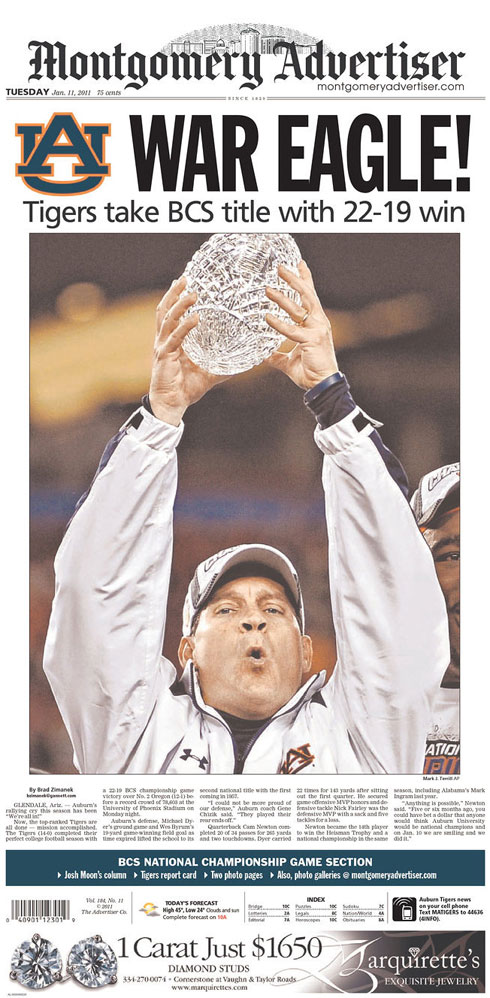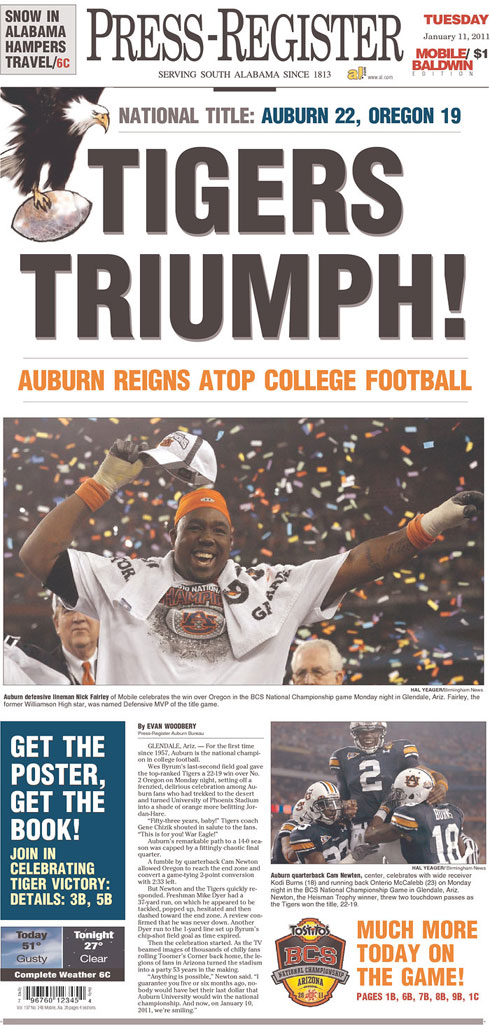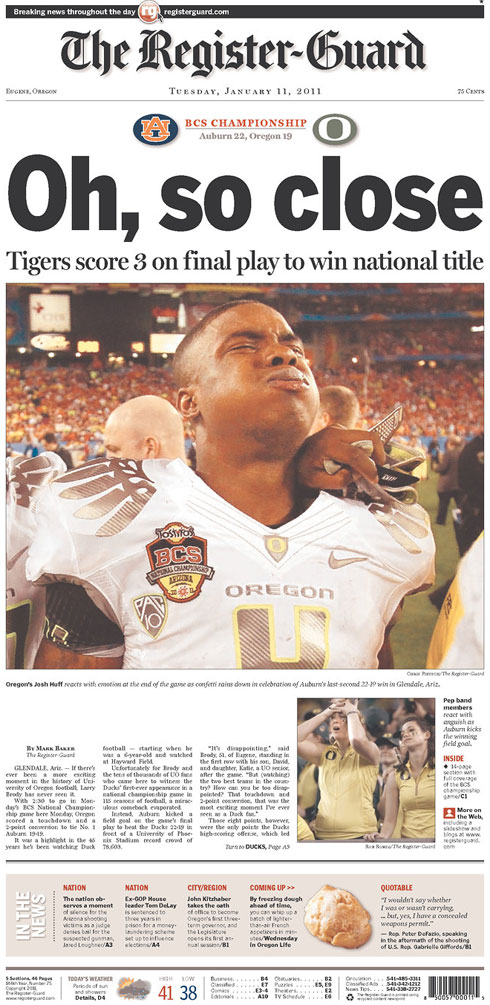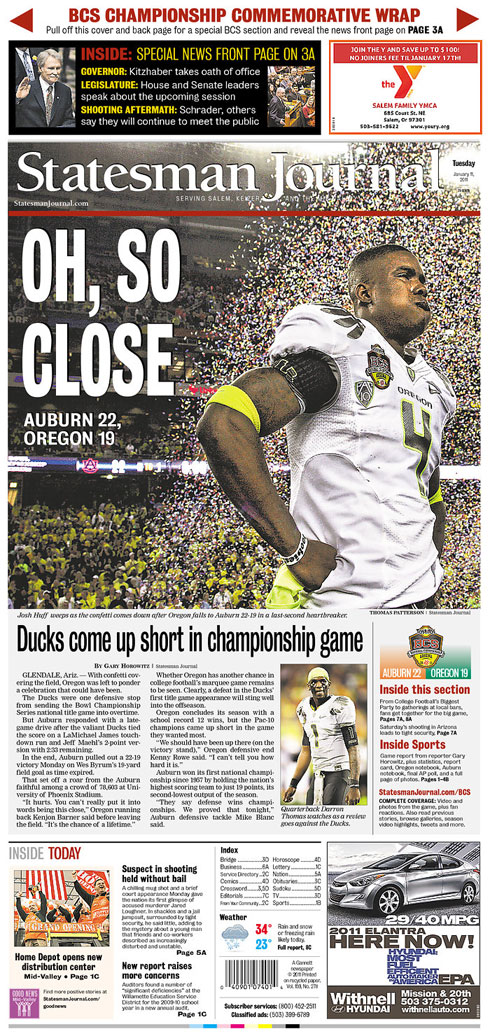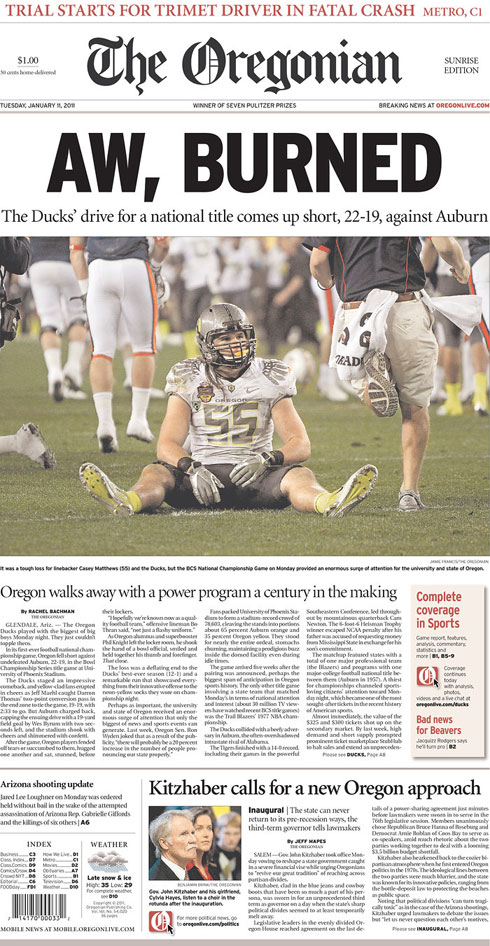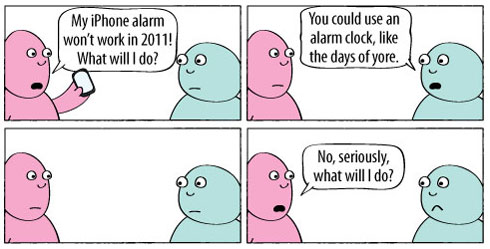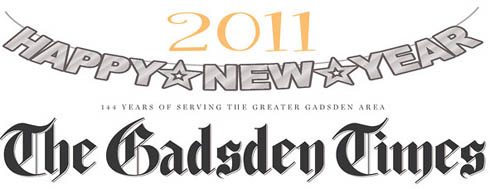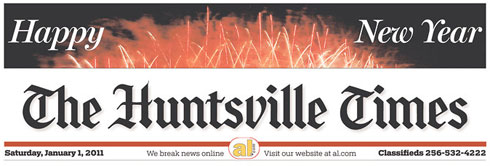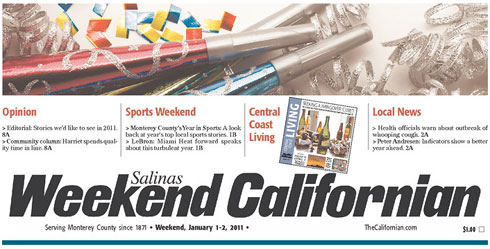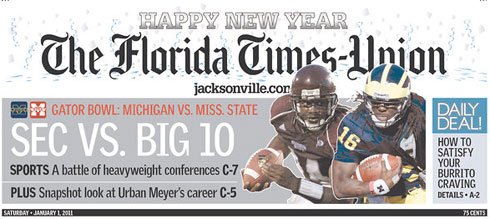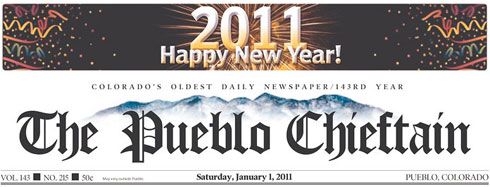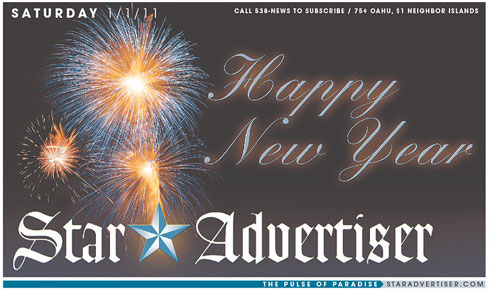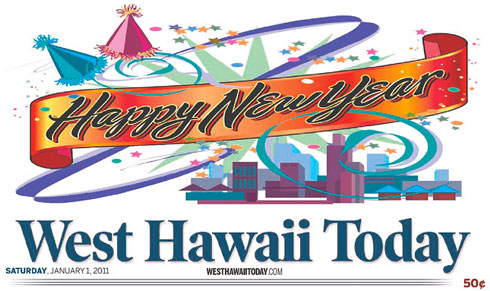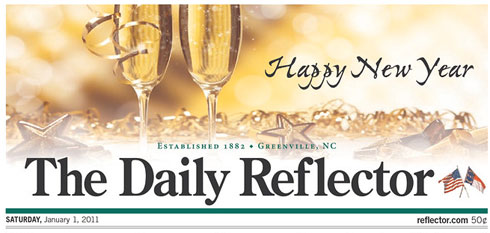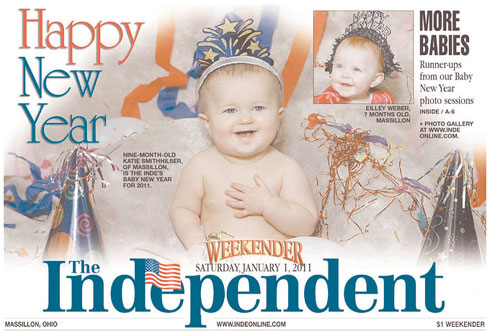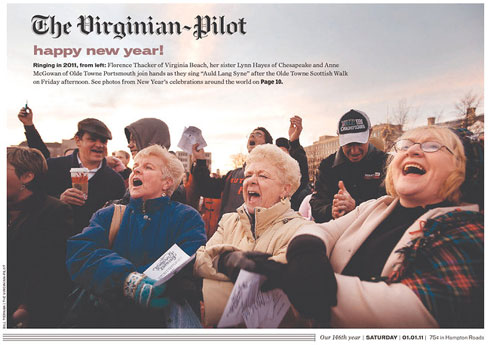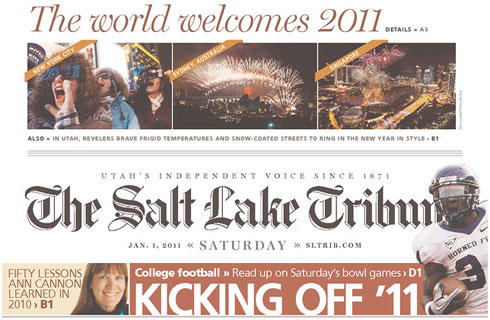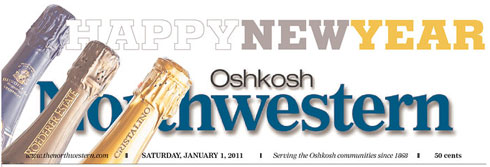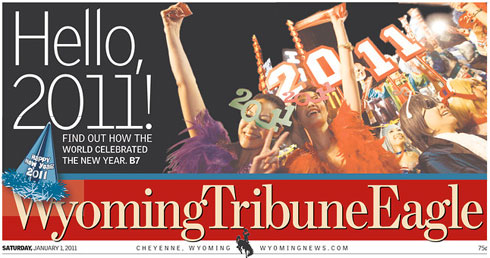Monday’s front page of The Green Bay Press-Gazette has received a lot of attention. It’s been on blogs, news sites and all over Twitter. Keep in mind that many people on Twitter think nothing of using “u r” in place of “you are.” When these traitors to the English language point out a spelling error, you know your mistake has gone viral.
The error is a simple spelling error: Where there should have been a “G” was a third “C.” Many people wonder how anyone missed that, let alone several people.
When I first saw the page with the preface of “spot the error,” I glossed over the third “C.” The letters are in all caps, and the C looks so close to the G that my mind filled in the blanks. It took me a second before the “Oh, shit” moment.
And it indeed is an “Oh, shit” moment. No one wants this. A lot of us in the news industry will jump on this error, but what many of us won’t admit is that we’re glad it wasn’t us who made this mistake. Why could it have been us? Because we’ve worried about making mistakes like this, mistakes that other people could see and think of as inexcusable.
We’ve all obsessed over these things. I dare you to find a journalist who hasn’t done at least one or two of the following:
- Called an editor to have him read back a paragraph, just to make sure a fix you made got in there.
- Taken a story or graphic home with you so that you could double- or triple-check the facts.
- Taken a calculator with you to double-check the numbers.
- Have a friend or significant other read over something to check for errors. (I’ve made use of my friends who are math teachers.)
- Called or e-mailed a source to have them verify a wording of something they verified in the last e-mail or call.
- Woken up in the middle of the night and checked his or her story, graphic, cutline, whatever.
And yet there have been times when errors have crept in despite whatever mechanisms we have against these things. And if you’ve got OCD and Catholic guilt, then nothing a reader could say will be worse than what you’ll say to yourself.
Let’s be clear, though: This is no justification or excuse for the errors, or else they wouldn’t be called “errors.” Any error is regrettable, and when we let them in, we’re falling short of our job. And we’re damaging our reputations among the readers who’ve already got a golconda of reasons to distrust us. I know of one couple in the Midwest who makes a morning game of spotting errors in the local paper. Sadly, they’ve found more in the last few years. (And no, this couple is not my parents.)
In the blogs this week, I’ve seen this Green Bay headline compared to the infamous “Dewey Defeats Truman” headline. I’ll grant you a few things:
- Both were bold, in all caps.
- Both were prominent, above-the-fold headlines that caught the eye.
- Both were regrettable.
But in the Green Bay headline, they at least got the right city. The factual error was a spelling error, not an error incorrectly calling a presidential election. If the Press-Gazette had published a headline that said, “Chicaco defeats Green Bay,” then the “Dewey Defeats Truman” comparison would be right on the money. But yes, they’re both egregious “Oh, shit” errors. [See UPDATE below.]
These errors raise our consciousness, though, and can restore our vigilance. Craig Silverman at Regret The Error has offered to send a free copy of his book to journalists who send him their personal accuracy checklists. I’ve enjoyed seeing the responses he’s gotten, and I think it will help all of us.
Here’s more or less what I’ve made my habit for my graphics:
- Have I cut and pasted the numbers and names, or have I typed them myself?
- Have I checked to make sure the numbers and names match up with the source material?
- Do the numbers add up to what the graphic says they add up to?
- Do the numbers, names and facts in my infographic match what’s in the reporter’s story?
- Have the reporter and editors seen this graphic?
- Have I had someone else double-check the graphic against the source info?
- Have I done a follow-up accuracy check with all my sources to make sure I have the information correct?
- If using color-coding, do the colors match the right values? And are the colors different enough to be distinguishable?
- If I’ve had to rescale or move any of the elements on the page, did I move them all in the group?
- Are all the labeled roads labeled correctly?
- Are my numbered steps in order?
- If I had any “head goes here” or “XX” text fields in the graphic, have I replaced those with the actual text?
- Are my label lines pointing to the correct data points, locations, etc.?
These are second nature to many of us, as they seem like common sense. But it’s good to see it written down. What type of checklist do you have?
————-
UPDATE
I’ve since learned more about the Dewey headline, and can clarify more about the mistake. The Tribune was relying on polling data to call elections, and that night, the polling data suggested a huge Dewey win. As the deadline got closer, editors of the Tribune went with the data and put that headline in the first edition.
So, this error was a “source error.” The Chicago Tribune, of course, still published incorrect information, but it was a different kind of error. But it was one that has been talked about for several years, just as the Green Bay headline will be talked about for several years. The reasons behind the errors are different, but they’re doozies.
To newspaper people in my generation, we’ve almost always had a result for the next day, or we’ve at least run a generic “too close to call.” To us, “Dewey Defeats Truman” comes from a world we can’t comprehend: “You mean they couldn’t just plug it in Excel to see who won? Like who was their CAR/data guy? OMG!” So, younger journalists might forgive the typo sooner than the incorrect election result simply because they grasp it more easily. But again, understanding careless errors doesn’t justify them.

